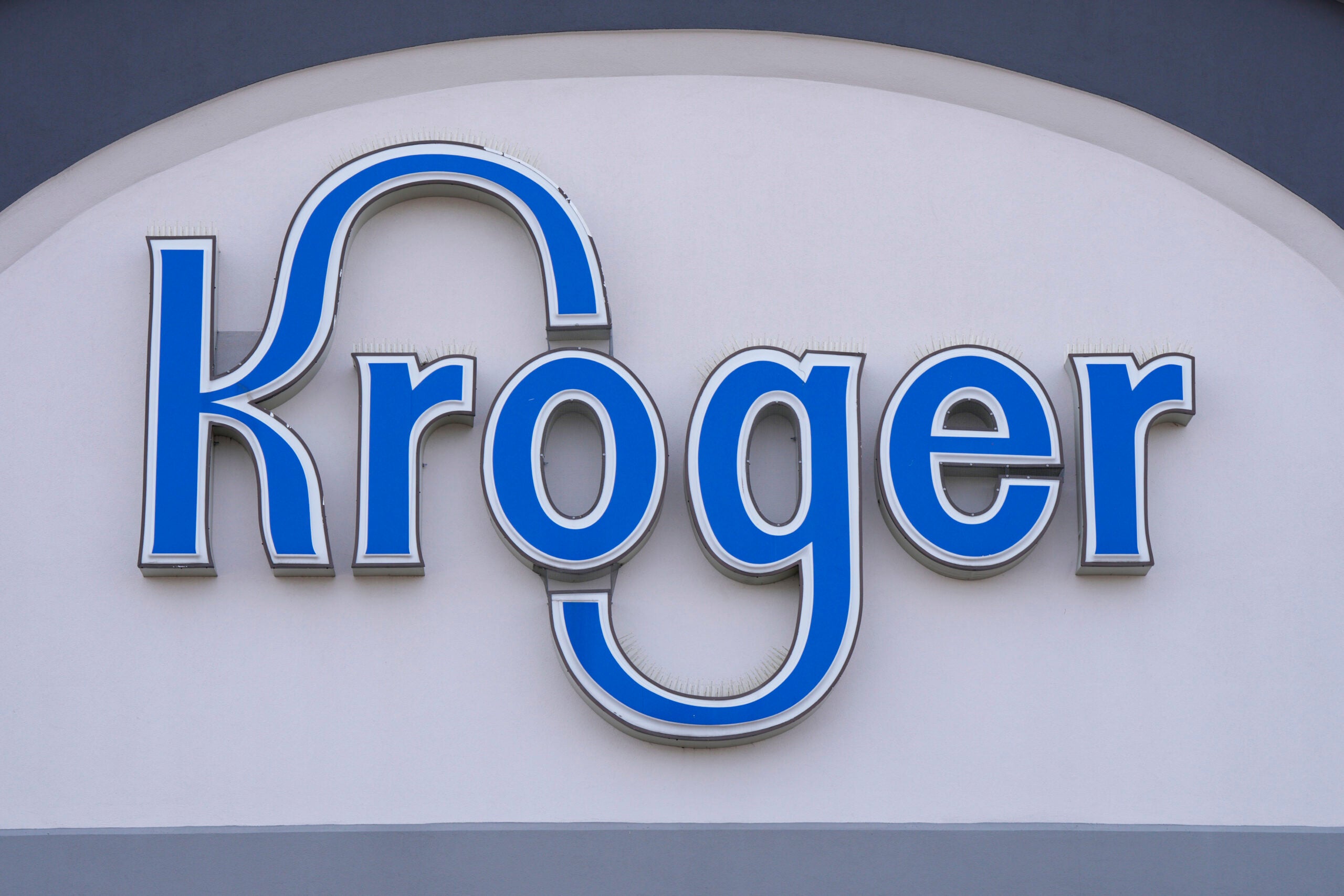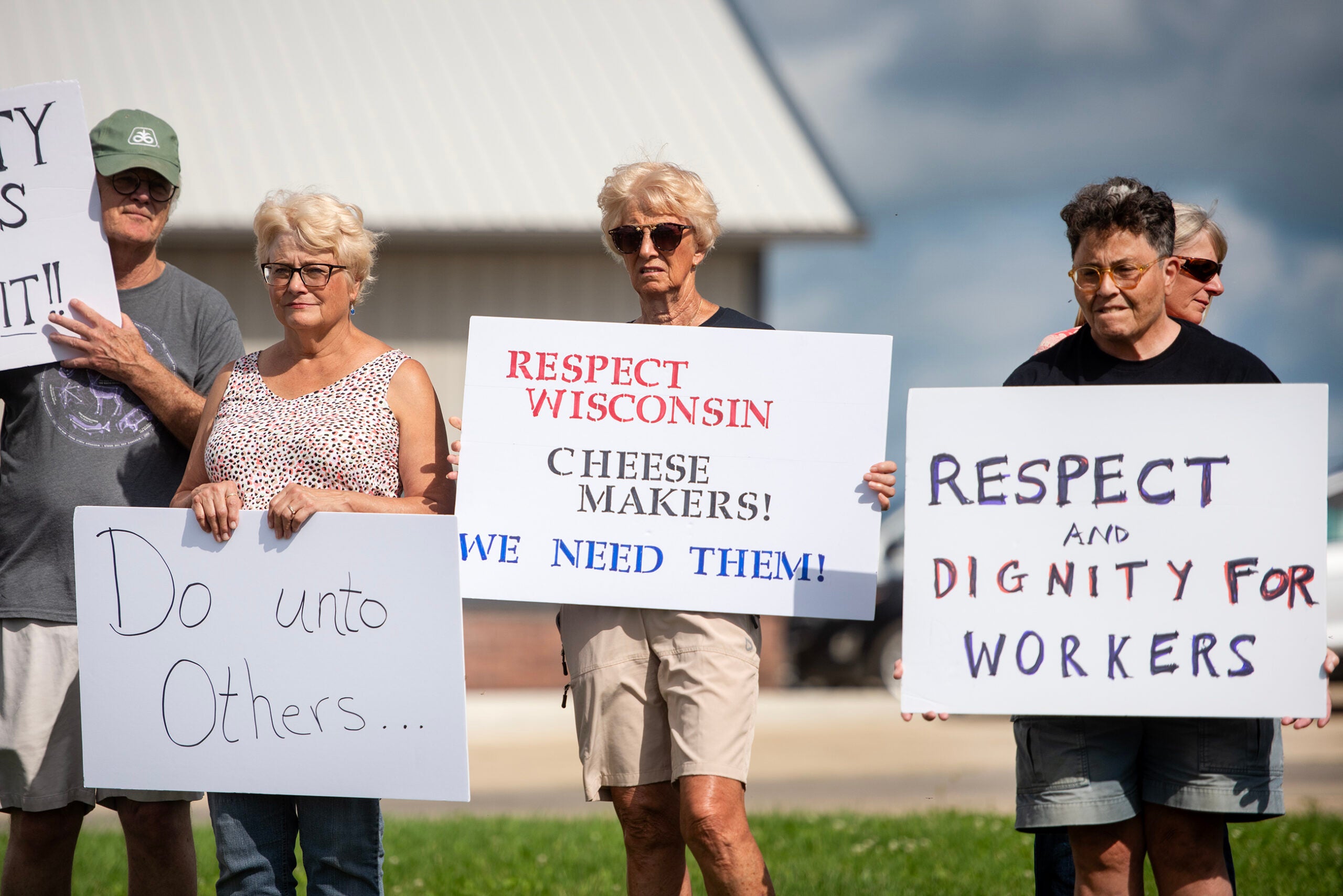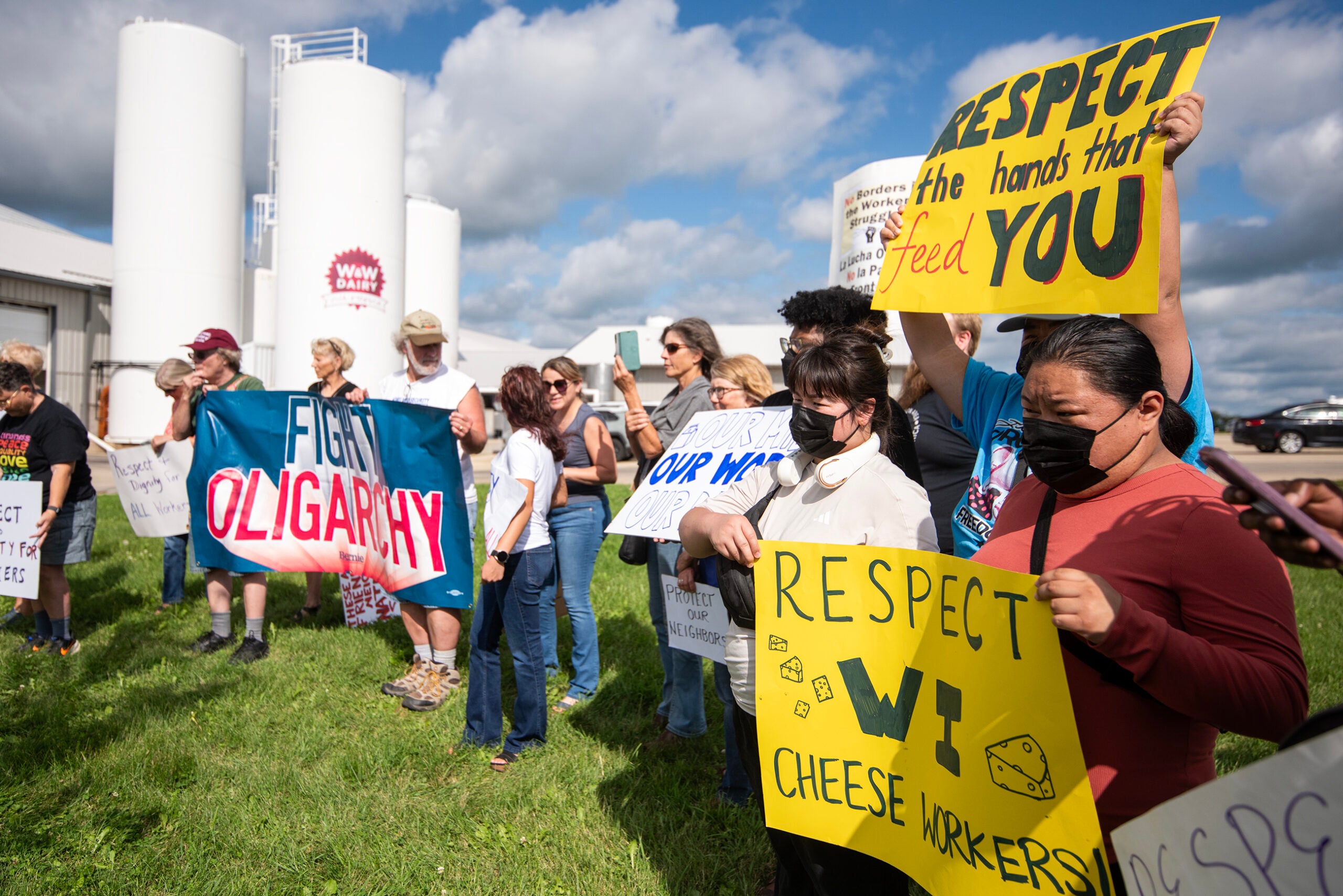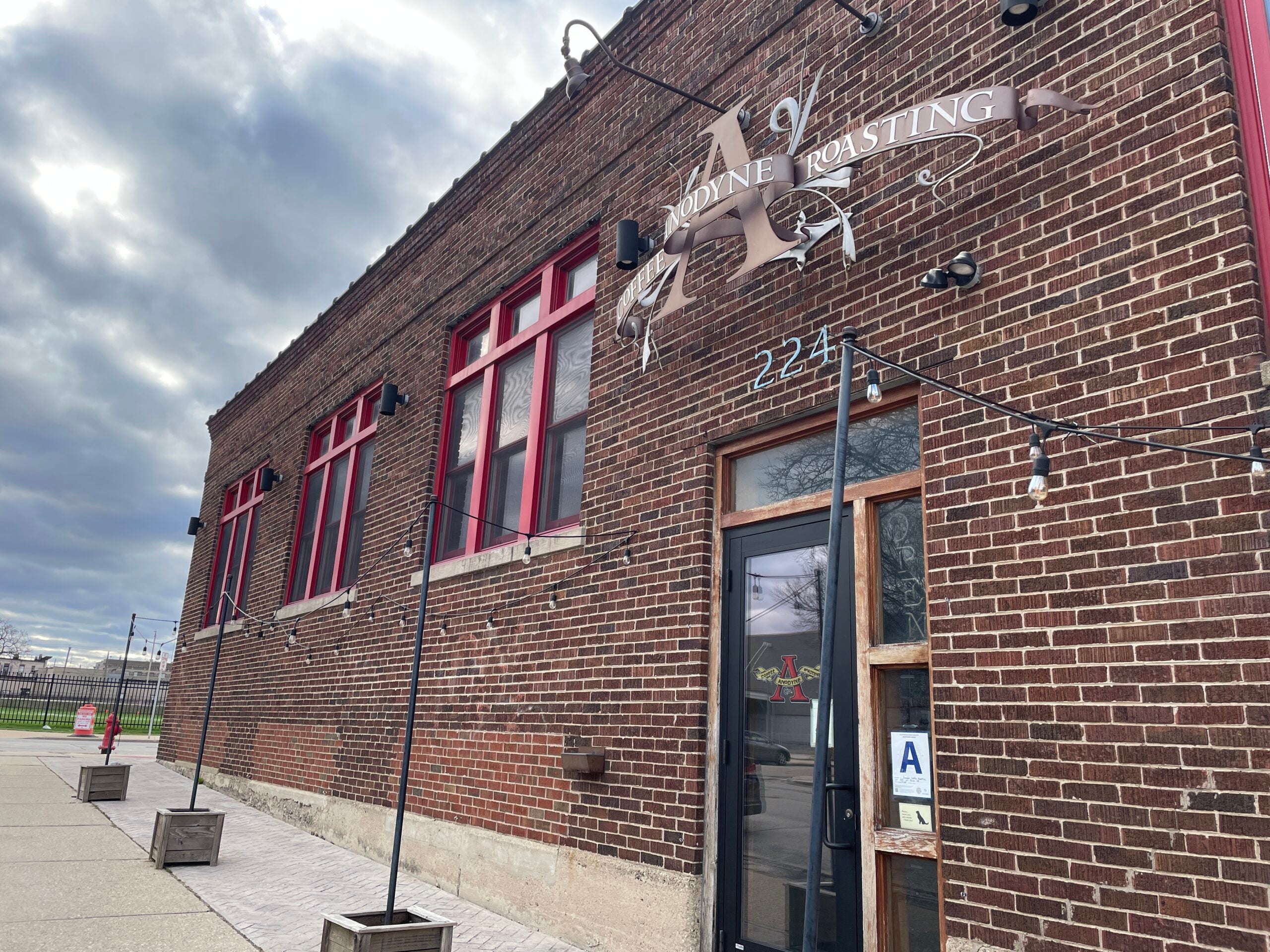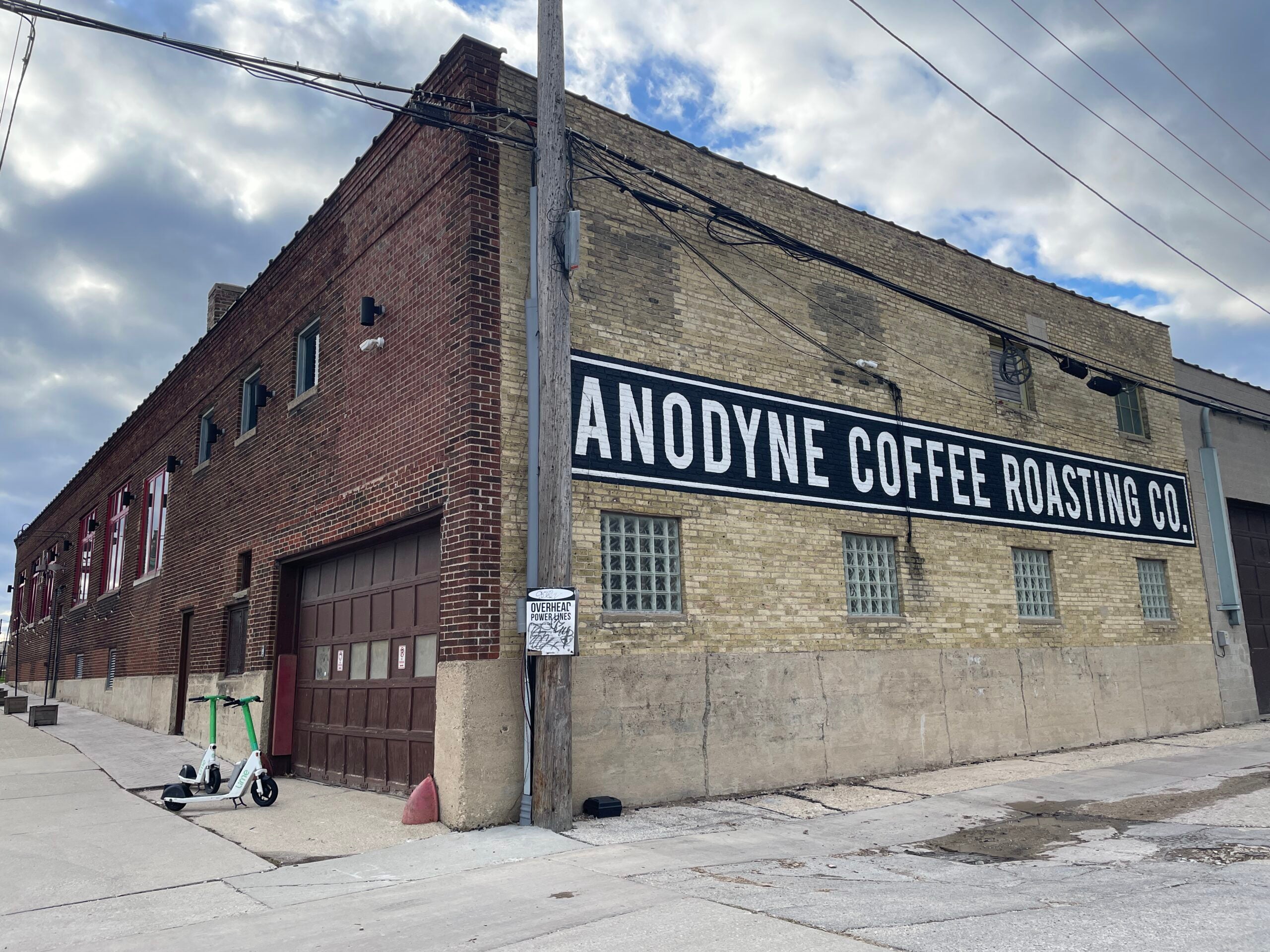It was a triumphant year for workers. Part-time UPS drivers got 55% raises. Airline pilots 40%. And auto workers landed a 25% increase in pay plus additional cost of living adjustments. The wins were widespread, from Hollywood actors to nurses.
Most of those gains were secured by established unions with sizable coffers. A different story played out at many newly-minted unions, including those at the center of much hoopla just a year earlier.
Fledgling unions have struggled to negotiate contracts or even get to the bargaining table. Here’s a brief snapshot of where things stand at two such unions, the Amazon Labor Union and Starbucks Workers United.
News with a little more humanity
WPR’s “Wisconsin Today” newsletter keeps you connected to the state you love without feeling overwhelmed. No paywall. No agenda. No corporate filter.
Amazon Labor Union: “They just pretend that we don’t exist”
The Amazon Labor Union’s stunning union election victory at a massive warehouse on Staten Island in the spring of 2022 led to predictions of a labor renaissance.
But that’s not how things have turned out for Amazon workers. Far from it.
Twenty-one months later, not only has the Amazon Labor Union fallen short on unionizing other warehouses, its efforts to get to a first contract at the one warehouse it did unionize have stalled.
“From Amazon’s perspective, they just pretend that we don’t exist,” says Connor Spence, an organizer with the Amazon Labor Union who worked as a packer at that Staten Island warehouse.
Amazon counters that it’s not what the “majority” wants
In a statement, Amazon said it strongly disagrees with the outcome of the March 2022 election, citing improper influence on the part of both the Amazon Labor Union and the federal labor board that oversaw the election.
“We don’t believe it represents what the majority of our team wants,” wrote Amazon spokeswoman Eileen Hards.
As Amazon awaits a response to its latest challenge to that election, the company has refused to sit down for collective bargaining with the Amazon Labor Union.
Moreover, shortly after the election, the company announced a policy that’s made a second union election victory even less likely: Employees who are off duty are not permitted inside buildings or in working areas outside.
This fall, Spence was terminated over multiple violations of that policy. He’d spent a lot of his off-duty time in the break room organizing a walkout.
Amazon maintains that the policy is about employee safety and security.
“This has nothing to do with whether Mr. Spence supports a particular cause or group, but rather his blatant disregard for our policies,” wrote spokesperson Hards.
Federal labor officials say Amazon’s policy violates workers’ rights
Spence, who’s seeking reinstatement, contends that Amazon’s policy is a violation of workers’ right to organize under the National Labor Relations Act.
This position is backed by federal labor officials who have filed a complaint over it.
It’s not the first time such a policy has been challenged. Under a nationwide settlement in December 2021, Amazon agreed to rescind an earlier, similar policy, which prohibited employees from being on site more than 15 minutes before or after a shift.
Spence doubts the Staten Island union victory would have happened had that policy been in effect in the months leading up to the election. Now, under the new, stricter policy, he says organizing is extremely difficult.
“It can take a lot of time. It can take a lot of resources,” he says. “And when the company has just such an unfair advantage, and the playing field is as un-level as it is, it makes victory unlikely.”
The issue is expected to get a hearing before an Administrative Law Judge next year.
At Starbucks, 380 stores are unionized. Not one has a contract
More than two years have passed since the first Starbucks stores voted to unionize in Buffalo, N.Y.
Close to 380 Starbucks stores have since followed.
But not one has a contract. Starbucks and Workers United, the union representing the vast majority of unionized Starbucks stores, have each accused the other of not bargaining in good faith.
“I kind of knew that it wasn’t going to be a quick fight. It wasn’t going to be an easy fight,” says Ian Meagher, a barista who’s organized multiple Starbucks stores in Oregon and currently works for one in Portland. “I would have preferred that Starbucks play ball.”
What Meagher counts as a victory is the fact that Starbucks has already acted on some of the union’s demands, granting benefits such as credit card tipping and faster sick time accrual at non-union stores.
While that means that workers at some unionized stores, including the first one he organized in Eugene, Ore., are not enjoying those benefits, the vast majority of Starbucks employees are.
“It’s been a real win for the working class, for the baristas of Starbucks Corporation on the whole,” Meagher says. “I’m very happy to have been a part of that.”
As the year draws to a close, Starbucks management appears to be extending an olive branch. In early December, Starbucks sent a letter to the president of Workers United proposing that collective bargaining resume in January, with a goal of getting to contract ratifications in 2024.
That was followed days later by the release of a report Starbucks had commissioned, examining the company’s response to the union drive. The report urged the company to engage constructively with the union and redouble efforts to restart dialogue.
How this new stance changes the trajectory for the hundreds of unionized Starbucks stores remains unclear. That’s because Starbucks continues to challenge findings by the National Labor Relations Board and its judges that the company violated labor law in numerous instances over the past two years.
Starbucks has gone so far as to ask the U.S. Supreme Court to review whether a lower court erred in issuing an injunction requiring Starbucks to reinstate fired union supporters in Memphis, Tenn.
This month, federal labor officials issued a consolidated complaint, ordering Starbucks to reopen 23 stores it had closed in 2022 after concluding the company had done so to discourage union activity.
A hearing on the matter has been scheduled for next August.
Editor’s note: Amazon is among NPR’s financial supporters and pays to distribute some of our content.
9(MDAyMjQ1NTA4MDEyMjU5MTk3OTdlZmMzMQ004))
© Copyright 2025 by NPR. To see more, visit https://www.npr.org.9(MDAyMjQ1NTA4MDEyMjU5MTk3OTdlZmMzMQ004))



